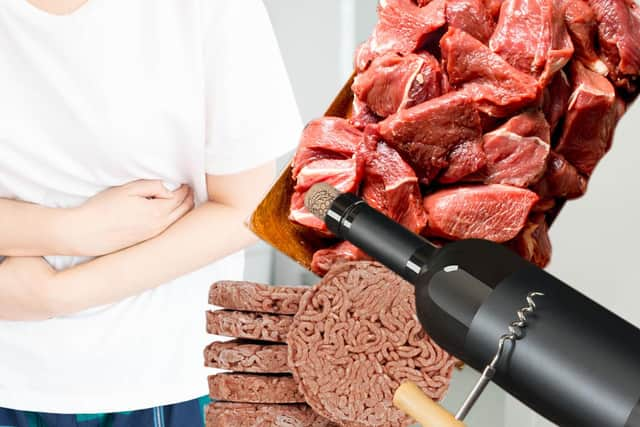‘Certain food and drinks can increase the risk of bowel cancer’: what to avoid and what can help with bowel health explained
This article contains affiliate links. We may earn a small commission on items purchased through this article, but that does not affect our editorial judgement.
and live on Freeview channel 276
Bowel cancer is one of the most common cancers in the UK, with more than 42,000 people diagnosed with the condition every year.
However, there are numerous factors that can increase the risk of getting bowel cancer, including age, family history and diet.
Advertisement
Hide AdAdvertisement
Hide AdThe latter has recently been looked into further, with a major study in the US suggesting a possible link between the heavy consumption of sugary drinks and the risk of developing bowel cancer before the age of 50.


Genevieve Edwards, chief executive at Bowel Cancer UK, said this study “further shines a light on the complicated relationship between our diet, lifestyle and risk of developing bowel cancer.”
But it’s not just sugary drinks that may have an impact on the risk of developing bowel cancer, with other food and drinks playing their part.
Which food and drinks can increase the risk of bowel cancer?
Rupal Joshi, clinical lead at digital men’s health clinic Numan, says there’s “a large amount of evidence to suggest certain food and drinks can increase the risk of bowel cancer.”
Advertisement
Hide AdAdvertisement
Hide Ad“In particular, large consumption of red meat such as beef, lamb and pork, and processed meats such as bacon, ham, and sausages are likely to increase the risk of bowel cancer,” she adds.
Processed meats have chemicals, such as nitrates, added to them in order to preserve them, but these can sometimes convert into cancer-causing substances.
“Other chemicals that are naturally found in red meat or produced during the cooking process can damage cells in the body,” adds Ms Joshi.
Dr Deborah Lee, from Dr Fox Online Pharmacy, explains that the risk of bowel cancer is increased in those who eat what is referred to as a pro-inflammatory diet.
Advertisement
Hide AdAdvertisement
Hide AdThis is “a typical unhealthy diet - containing large amounts of meat, lacking fruit, and vegetables, lacking dietary fibre, and high in saturated fat and sugar.”
In this type of diet, “there is a profound lack of antioxidants which are vital for human health,” and can lead to “chronic systemic inflammation,” adds Dr Lee.
The Department of Health and Social Care (DHSC) currently recommends that people who eat more than 90g (cooked weight) of red and processed meat a day should cut down to 70g a day, which could help reduce the risk of bowel cancer.
However, it’s not just food that can increase the risk of bowel cancer, with an association between drinking large amounts of alcohol and an increased risk of bowel cancer.
Advertisement
Hide AdAdvertisement
Hide AdMs Joshi explains that chemicals produced in the breakdown of alcohol can damage cells, which then increases the likelihood of different types of cancers, with men and women advised not to drink more than 14 units of alcohol a week on a regular basis.
Although Ms Joshi alludes to the fact that a few studies “have found that sugary drinks can also increase the risk of various cancers,” she said “more research is needed to confirm the effect.”
‘Help stack the odds against developing bowel cancer’
While some food and drinks can increase the risk of bowel cancer, there’s also some that can actually help protect against the disease.
The Bowel Cancer UK website says fibre “is an important part of a bowel healthy diet and is very important in reducing your risk of bowel cancer.”
Advertisement
Hide AdAdvertisement
Hide AdVegetables and fruit may also help to protect against bowel cancer because they contain antioxidants which help to delay or prevent cell damage, with it recommended to try and eat at least five portions of vegetables and fruit every day.
Avoiding “sugary drinks such as cola, lemonade, fruit squash with added sugar and fruit juices,” and instead switching them for water and low fat milk is also advised by the charity, who says: “Fibre and water are a great combination for good bowel health.”
Bowel Cancer UK adds: “Making simple changes to your diet like limiting sugary drinks, having plenty of wholegrains and fibre, avoiding processed meat and limiting red meat, being of a healthy body weight, having regular physical activity, stopping smoking and cutting down on alcohol can help stack the odds against developing bowel cancer.”